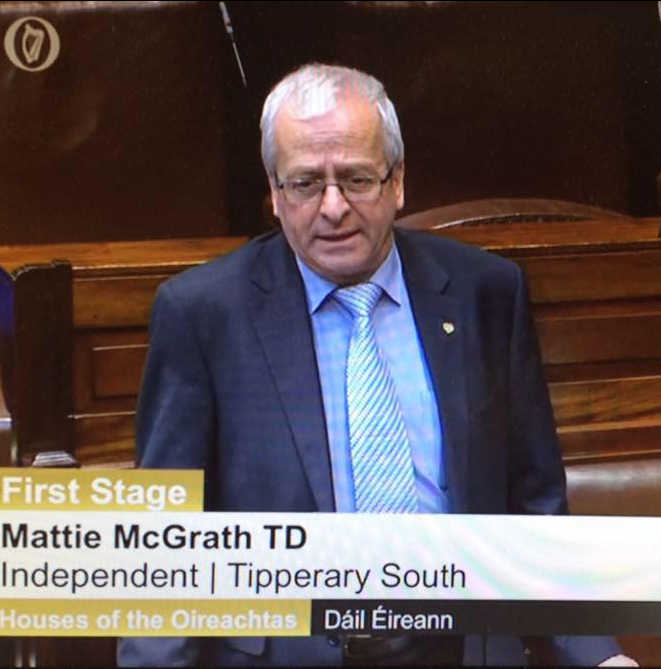The Rural Independent TD Grouping has slammed the government plan for farmers to reduce agricultural emission by 25% by 2030.
Tipperary TD Mattie McGrath again defended the efficiency of Irish Farmers and said that output could be put at risk making Ireland dependent on food imports.
He also questioned the value of restrictions in Ireland if other countries such as Brazil expand their national herds.
He queried the process used to calculate emissions from Irish food producers versus the treatment of oil producing nations.
The emissions from oil nations are counted where the product is consumed he claimed rather than where it is produced and the Rural Independents want a similar approach for Irish farmers rather than a cut in emissions.
Irelands climate action plan includes emissions reductions targets for Agriculture of 25% Industry at 35%, Residential Buildings 40%, Commercial and Public Buildings 45%, Gas, Petroleum Refining and Waste 50% , Transport 50% and Electricity has a target for a 75% reduction in emissions by 2030.
The figures are legally binding and Government departments will be responsible for reducing the emissions under their remit.
Tipperary TD Michael Lowry has described the new emission targets for farmers as “unrealistic and unattainable”. However he is now calling for government supports to allow farmers to reach the targets, which include a cut in emissions of 25% by 2030, in a manner that allows them to remain economically viable. The Thurles based TD says the dairy and beef sectors will be the most impacted. Deputy Lowry called on the Government to publish details of the financial package involved to help allay anxiety and uncertainty.
Concern has also been expressed for the entire agri sector and how rural economies will be impacted by the measures to reduce emissions.
Agriculture Minister Charlie McConalogue rejects the idea of a major reduction in the number of bovines in the country saying that the use of feed additives, breeding, and using clover and mixed species grasses can deliver emissions reductions. Mr McConalogue also pointed out that a KPMG report produced for the Farmers Journal revealed that an 18% reduction was a win win with improvements to farmer incomes at that level and a reduction in emissions. The KMPG report shows that to reach a 21% reduction, a 6% cut to the beef herd and a 5% cut to the dairy herd would be required. It found there would also be 10,000 job losses to the sector and a €1.1bn hit to the rural economy.
















